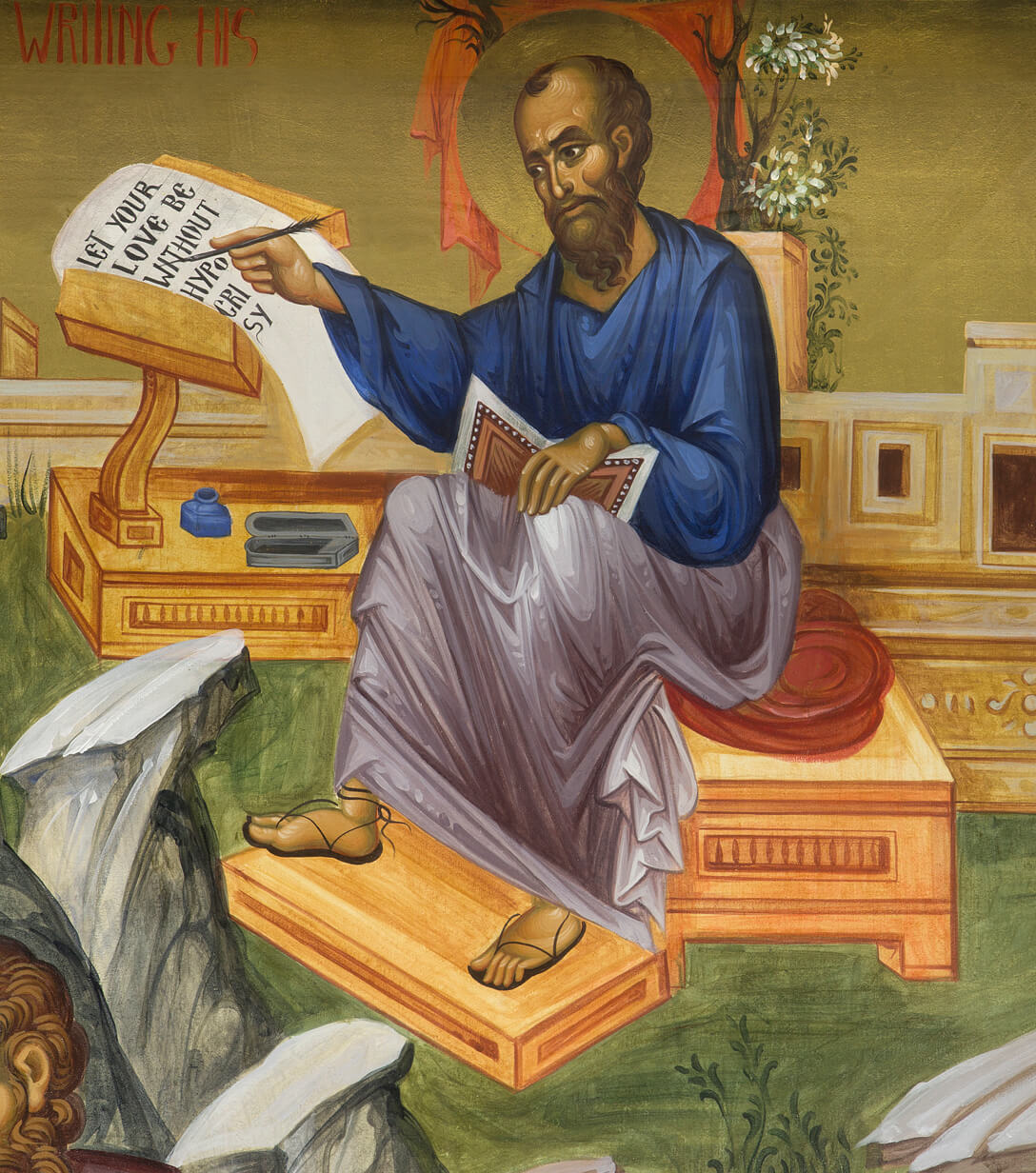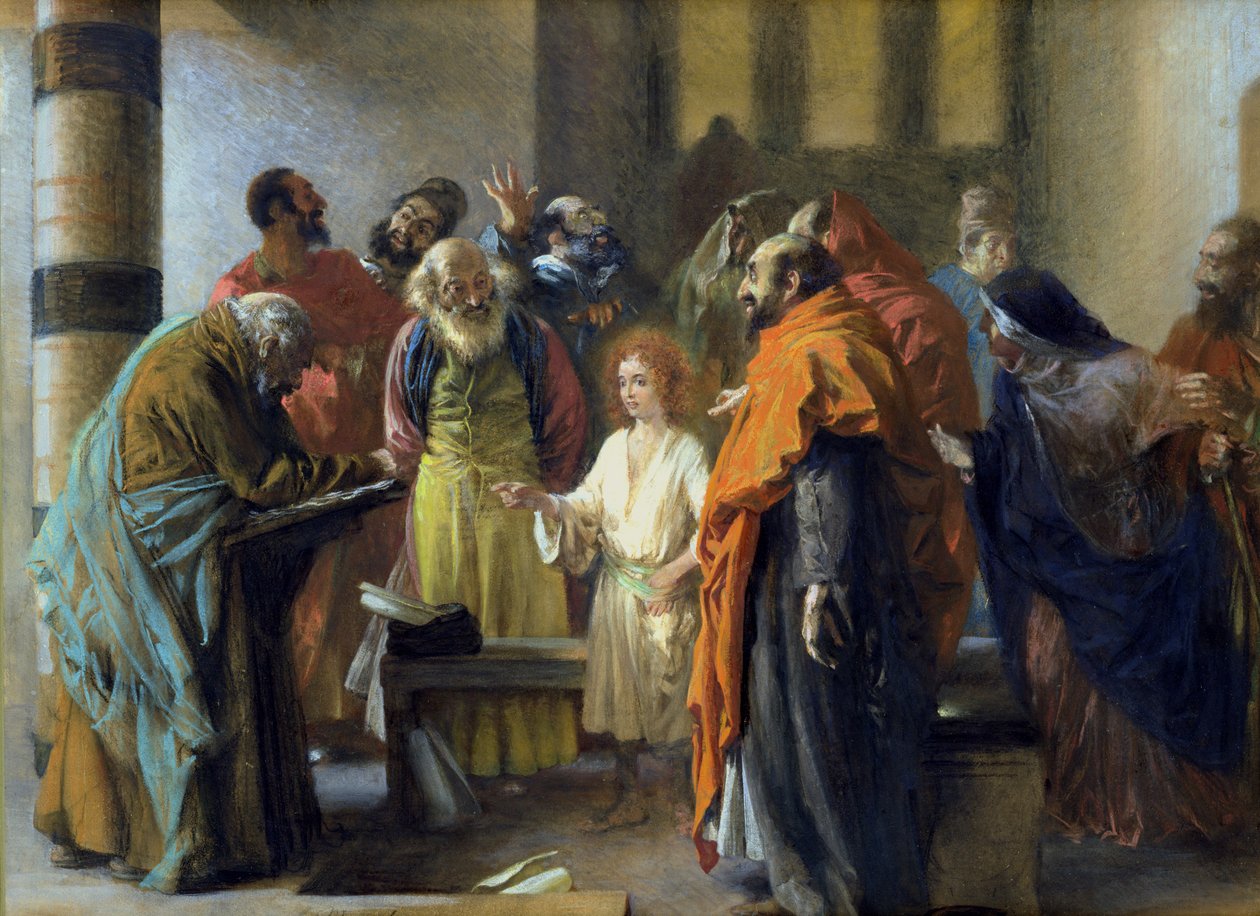+ The Conversion of St. Paul – January 25th, 2026 +
Acts 9:1-22; Galatians 1:11-24; Matthew 19:27-30
Beautiful Savior Lutheran Church
Milton, WA

In the Name of the Father and of the + Son and of the Holy Spirit. Amen.
There are a quite a few death and resurrection stories out there in the world of fantasy and sci-fi. Mr. Spock in Star Trek III. Aslan the Lion in The Lion, the Witch, and the Wardrobe. Sleeping Beauty.
What could these fictional characters in sci-fi and fantasy possibly have in common with the apostle Paul in real history? Something that is the heart of the Christian story. And St. Paul’s life. And yours and mine too.
Death and Resurrection.
Death we’re familiar with. Tragically familiar. But resurrection? That sounds too good to be true. Like a fairy tale. A legend.
And yet, St. Paul’s conversion is a real life death and resurrection story built on the foundation of the greatest death and resurrection story of them all: Jesus’ death and resurrection.
And this story takes place not in comic books or carefully crafted tales, but in human history. In real time and place. On a Friday afternoon, upon a cross, outside Jerusalem. Jesus is crucified under Pontius Pilate for you.
For Paul, Jesus’ death and resurrection meant his own death and resurrection. And that’s what he preached. Again. And again. And again.
I decided to know nothing among you except Jesus Christ and him Crucified.
For Paul, as for Jesus, and for us…everything Jesus says and does. His life and teaching. His miracles and mercy. It’s a road that leads to the cross or from the cross.
The Conversion of St. Paul is a death and resurrection story. For every time the Holy Spirit creates faith there’s a death and resurrection.
Same goes for us. Baptism is our death and resurrection in Jesus. Christ crucified is the sum and substance of our faith as well.
Today we join St. Paul in rejoicing in and proclaiming Christ crucified and risen for us. For Jesus has also brought us back from the dead.
That’s precisely where Paul’s story begins. No doubt he felt alive, heading down that Damascus road breathing threats and murder against the disciples of the Lord. The high priest gave him a license to persecute. Then suddenly a blinding light. Heaven flashed before his eyes. Saul fell to the ground. Dead in his tracks. And the voice of Jesus rang out.
“Saul, Saul, why are you persecuting me?” And he said, “Who are you, Lord?” And he said, “I am Jesus, whom you are persecuting.
Saul probably thought he was going to die. The irony is that Saul was already dead — dead in trespasses and sin. His mouth was an open grave that spewed forth curses, bitterness, and deceit (Romans 3) against Christ and Christians.
He was blind – spiritually – and for three days, physically as well. On that Damascus road, Jesus stripped Saul of his boasting in the Law, confidence in the flesh, and zealotry, and revealed it for the rubbish it truly was.
Saul, who had so violently warred against Jesus and the Way, became utterly and completely dependent, like a newborn infant. Rise and enter the city, and you will be told what you are to do, Jesus said. Saul couldn’t even do that on his own. The men traveling with Saul led him, blind and helpless into Jerusalem.
This is how our Lord converts us as well. We too, were enemies of God. The wages of our sin is death. Our hearts and breathe burns hot with threats and murder against our neighbors. There’s a little Saul in each of us who delights in doing whatever we think is right, and doing it with great zeal. We’re right there on the road with Saul. Enemies of God. Blind. Helpless. Utterly dependent. Dead…and in need of resurrection.
And that’s precisely where your story begins. You were dead in trespasses and sin (notice the past tense)…But God, being rich in mercy, because of the great love with which he loved us, even when we were dead in our trespasses, made us alive together with Christ.
The wages of our sin is death, but the free gift of God is eternal life in Christ Jesus our Lord.
By grace you have been saved through faith. And this is not your own doing; it is the gift of God, not a result of works, so that no one may boast.
In Saul’s conversion, we see our own. We’re utterly dependent upon God’s mercy. It need not be as dramatic as experience like Saul. And yet with simple water and word, Christ gives us faith in Him the same way: death and resurrection.
Brother Saul, the Lord Jesus who appeared to you on the road by which you came has sent me so that you may regain your sight and be filled with the Holy Spirit.” And immediately something like scales fell from his eyes, and he regained his sight. Then he rose and was baptized.
Saul received new birth in baptism, and a new name too - Paul. He who used to persecute Christ is now preaching the faith he once tried to destroy.”
Paul’s story is a death and resurrection story. And so is yours and mine. Do you not know that all of us who have been baptized into Christ Jesus were baptized into his death? We were buried therefore with him by baptism into death, in order that, just as Christ was raised from the dead by the glory of the Father, we too might walk in newness of life.
By God’s grace, how Paul lived. Walking in newness of Jesus’ crucified and risen life. By God’s grace, that’s how we live too. Each and every day…in the death and resurrection of Jesus.
A Blessed Conversion of St. Paul to each of you…
In the Name of the Father and of the + Son and of the Holy Spirit. Amen.


